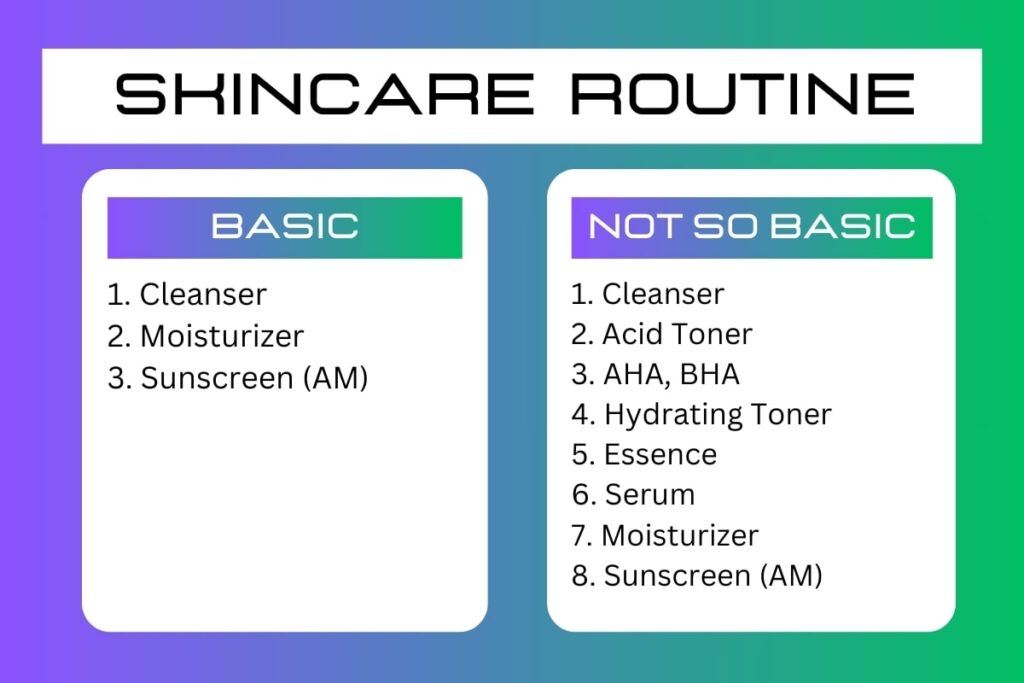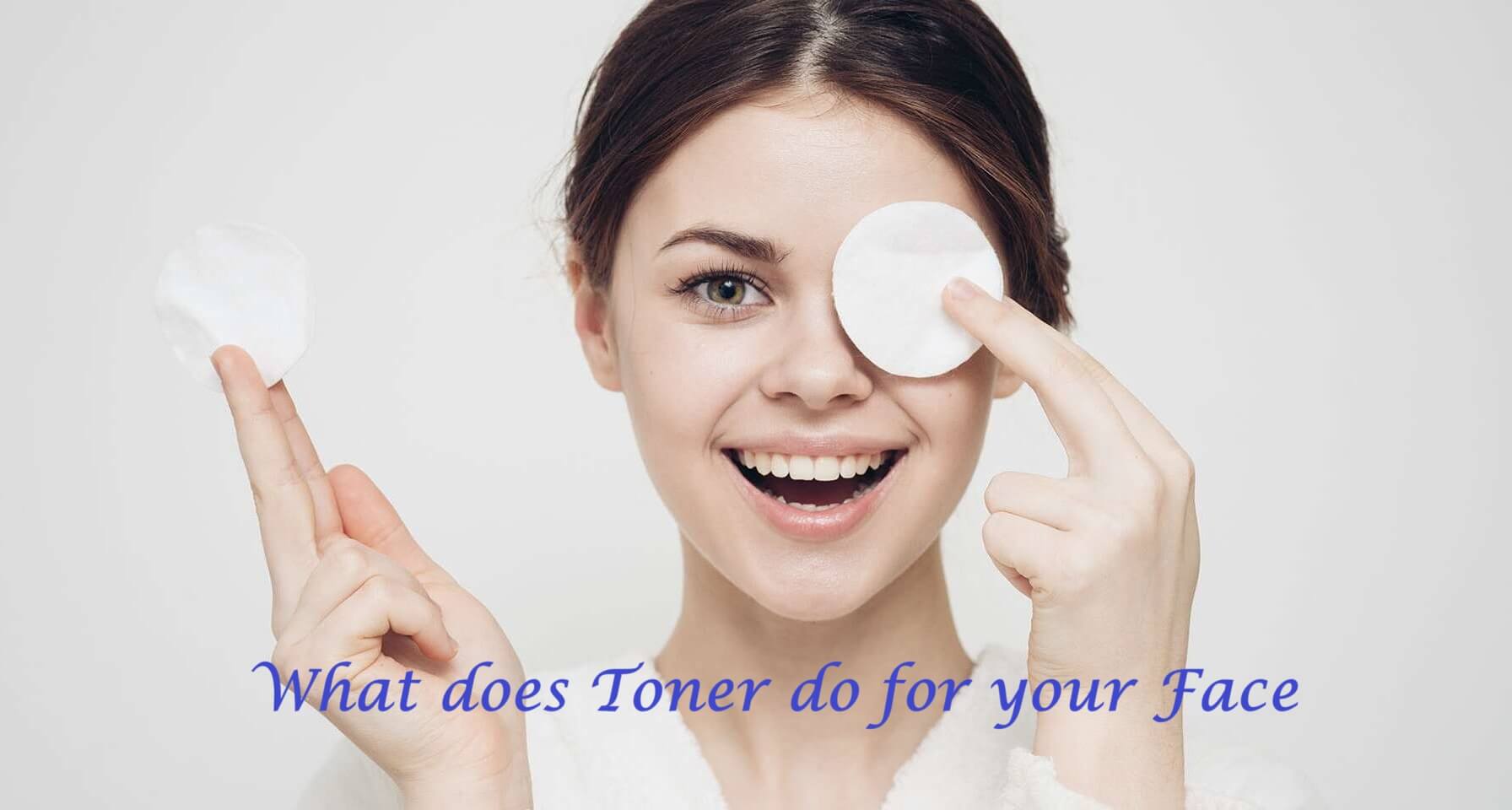Facial toners have provided great benefits in the skincare world for a long time. Traditionally, they were used for balancing skin pH and removing residual impurities after cleansing. However, modern advancements in skincare formulations prompt us to question, whether toner is necessary for facial skin.
What is toner, and what does toner do for your face that other products cannot?
In this article, you’ll get into whether you need toner in your skincare regime, along with the benefits of face toner that are often advertised. By examining both expert opinions and scientific evidence, we aim to determine if toner is necessary for skin health. Additionally, we will guide what to check before buying a toner, and discuss why are toners important for some individuals.
Historical Context
The use of toners in skincare has evolved significantly over the decades. Originally, toners were introduced to remove residual impurities left by harsh soaps and cleansers to restore the skin’s pH balance, which was often disrupted by these alkaline products. In the mid 20th century, toners were primarily alcohol based astringents, marketed as essential for tightening pores and controlling oil, particularly for those with oily or acne-prone skin.
As skincare science advanced, cleanser formulations improved, becoming more effective and gentler. Many modern cleansers are now pH-balanced, reducing the need for a toner to correct pH levels.
This shift prompts the question…. is toner necessary in a modern skincare routine? So let’s explore to gather the current relevance of toners in achieving healthy skin.
Modern Skincare Science
Modern skincare routines emphasize three key elements… cleansing, moisturizing, and sun protection, forming the foundation for healthy skin. Specialized treatments like serums and exfoliants address specific concerns, minimizing the need for toners.
Contemporary products often combine cleansing with hydration and barrier protection, diminishing the need for toners. Many moisturizers and serums now include active ingredients that provide the benefits traditionally associated with toners, such as soothing and hydrating the skin.
Scientific studies support that benefits attributed to toners, like pore tightening and oil control, can be achieved through other essential skincare products. This shift towards simpler routines reflects a broader trend in skincare, questioning the necessity of toners for maintaining healthy skin.

Common Misconceptions About Toners
Despite advancements in skincare science, several myths about toners persist. Having a proper understanding of these misconceptions can help you properly decide on the use of toners in your routine.
Myth 1: Toners are Essential for Removing Leftover Dirt and Makeup
Reality: Modern cleansers are highly effective, making an additional step unnecessary. If your cleanser isn’t thoroughly cleaning your skin, consider switching to a better formulation rather than relying on a toner.
Myth 2: Toners are Necessary to Balance the Skin’s pH
Reality: While toners were once needed to restore pH balance after using alkaline soaps, most modern cleansers are pH-balanced, rendering this function of toners largely obsolete.
Myth 3: Toners Shrink Pores and Prevent Acne
Reality: Toners can’t permanently reduce pore size. While some contain acne fighting ingredients like salicylic acid, these benefits are better achieved with targeted treatments such as serums or spot treatments.
Myth 4: Toners Provide Essential Hydration
Reality: Although hydrating toners can offer a moisture boost, a good moisturizer or hydrating serum can provide sufficient hydration without needing a toner.
Myth 5: Everybody Needs to Use a Toner
Reality: Skincare is individual. Many people maintain healthy skin without toners. It’s more important to tailor your routine to your specific skin needs rather than following generalized advice.
Myth 6: Toners Help the Skin with Better Absorption of Other Products
Reality: Toners are not necessary for product absorption. Other serums and moisturizers can penetrate the skin effectively on their own, especially if they are well formulated.
These misconceptions are often fueled by outdated practices and marketing. Debunking these myths helps clarify the true role of toners, which should be included in your routine based on personal skin needs and preferences, not misconceptions.

Skin Health and Essential Skincare Products
Maintaining healthy skin doesn’t mean using numerous products. Focusing on a few essential items can provide an effective skincare foundation. Here’s a look at the core components of a healthy skincare routine and why they are crucial, potentially making the need for a toner unnecessary.
1. Cleanser
A good cleanser is vital for removing dirt, oil, and impurities. Modern, pH-balanced cleansers eliminate the need for toners to adjust the skin’s pH. Choose a cleanser suited to your skin type, whether oily, dry, combination, or sensitive.
2. Moisturizer
Moisturizers hydrate the skin and maintain its barrier function. Available in various formulations, they contain ingredients like hyaluronic acid, glycerin, and ceramides. A quality moisturizer can provide hydration benefits, often attributed to toners.
3. Sunscreen
Daily sunscreen use is essential for protecting against UV rays, preventing premature aging, hyperpigmentation, and skin cancer. A broad-spectrum SPF 30 or higher is crucial for long term skin health.
4. Specialized Treatments
Incorporating serums and exfoliants can target specific concerns like aging, pigmentation, or acne. Serums with active ingredients and chemical exfoliants like AHAs and BHAs offer benefits that some seek from toners, such as improved texture and clarity.
5. Hydration and Diet
Internal factors like staying hydrated and eating a balanced diet, rich in antioxidants, vitamins, and omega-3 fatty acids support overall skin health. Consuming fruits, vegetables, and healthy fats contributes to a glowing complexion.
6. Lifestyle Factors
Adequate sleep, regular exercise, and stress management are vital for maintaining healthy skin. Poor sleep, high stress, and a sedentary lifestyle can lead to breakouts, dullness, and accelerated aging.

Potential Downsides of Using Toners
While toners can offer benefits, they also have potential downsides that should be considered before including them in your skincare routine.
1. Skin Irritation and Sensitivity
Traditional toners often contain alcohol and astringents that can strip natural oils, causing dryness, irritation, and increased sensitivity, particularly for dry or sensitive skin. Even alcohol free toners might contain fragrances or additives that could cause allergic reactions.
2. Over-Exfoliation
Toners with exfoliating ingredients like AHAs and BHAs can lead to over exfoliation when combined with other exfoliating products. This can damage the skin barrier, resulting in redness, peeling, and vulnerability to environmental damage.
3. Disruption of Skin Barrier
Harsh toner ingredients can disrupt the skin’s protective barrier, leading to chronic dryness, irritation, and increased susceptibility to infections and acne.
4. Unnecessary Steps and Expenses
Toners don’t benefit everyone. For many people, they add extra cost and steps into your regimen, proving benefits that could have been done by other products such as cleansers and moisturizers. Simplifying your routine can decrease time and money without compromising skin health.
In short, while some may find benefits from using toners, it’s important to weigh these against the potential downsides. Assess your skin type, concerns, and overall routine to determine if a toner is truly beneficial for you.

Expert Opinion on Toner
The necessity of toner in skincare routines is a debated topic among dermatologists and skincare experts. Here’s a summary of their perspectives:
Dermatologists’ Perspectives
Many dermatologists, like Dr. Joshua Zeichner, argue that toners are not essential due to the effectiveness of modern cleansers. Dr. Shari Marchbein highlights that pH-balanced cleansers reduce the need for toners to restore skin’s pH, suggesting that well cleaned and moisturized skin may not benefit significantly from a toner.
Skincare Experts and Influencers
Experts like Caroline Hirons believe toners can be beneficial for specific concerns, such as extra hydration or gentle exfoliation, but they are not mandatory for everyone. Influencer Hyram Yarbro advises focusing on basic cleansers, moisturizers, and sunscreen, before adding products like toners, emphasizing simplicity and effectiveness.
Scientific Studies and Research
Research supports the idea that modern cleansers and moisturizers can maintain skin pH and hydration without a toner. Studies on ingredients like witch hazel and salicylic acid show they can benefit specific skin types but are not universally necessary.
Personalizing Your Skincare Routine
Creating your own personalized skincare routine is important for healthy skin. Here’s how to determine if a toner is right for you and build a routine tailored to your needs:
1. Assess Your Skin Type and Concerns
Oily Skin: May benefit from a toner with salicylic acid to control oil.
Dry Skin: Could use a hydrating toner with glycerin or hyaluronic acid.
Combination Skin: Might need a balancing toner for the T-zone and hydration for other areas.
Sensitive Skin: Should avoid alcohol-based toners and opt for soothing ingredients like chamomile or aloe vera.
Identify primary concerns like acne, aging, or dullness to choose appropriate products.
2. Do You really need Toner?
Evaluate whether adding a toner would address specific needs that your current products do not.
Consider the following:
Hydration: If your skin feels tight after cleansing, a hydrating toner might help.
Exfoliation: If you need gentle exfoliation, a toner with AHAs or BHAs could be beneficial.
Soothing: If your skin is irritated or inflamed, a calming toner could provide relief.
Consider if other products like serums or moisturizers can provide these benefits more effectively.

3. Alternatives to Traditional Toners
Hydrating Mists, Provide a quick boost of moisture throughout the day
Essences, Light hydrating products that prep the skin for better absorption of serums and moisturizers.
Serums, Target specific concerns with concentrated ingredients.
4. Adjust Your Routine as Needed
Skincare is not static, your skin’s needs can change due to factors like weather, hormonal fluctuations, and age. So keep adjusting your routine accordingly.
Seasonal Changes: Opt for richer moisturizers in winter and lighter formulas in summer.
Aging Skin: Introduce anti-aging ingredients like retinoids and peptides as you age.
Acne-Prone Skin: Use treatments with salicylic acid or benzoyl peroxide during breakouts.
5. Consult with Professionals
It’s always recommended to get information from a dermatologist or skincare professional according to your skin type and concern.
Conclusion
In conclusion, the debate about whether toner is necessary for skin health highlights the importance of personalized skincare routines. While toners have been a longstanding staple in many skincare regimens, modern advancements in skincare science suggest that they may not be essential for everyone.
Throughout this article, we’ve explored the historical context of toners, debunked common misconceptions, and examined expert opinions on their efficacy. We’ve also discussed the potential downsides of using toners and offered tips for personalizing your skincare routine to suit your individual needs.
Ultimately, the decision to use a toner depends on factors such as your skin type, concerns, and personal preferences. While some individuals may benefit from the additional hydration or exfoliation that toners provide, others may find that their skincare needs are adequately met with simpler routines focused on cleansing, moisturizing, and sun protection.
By understanding your skin’s unique needs and choosing products that address them effectively, you can create a skincare routine that promotes healthy, glowing skin without unnecessary steps. Whether you choose to incorporate a toner or not, the key is to listen to your skin and tailor your routine accordingly for optimal results.


2 thoughts on “What Does Toner Do For Your Face? Who Can Benefit from Toner?”